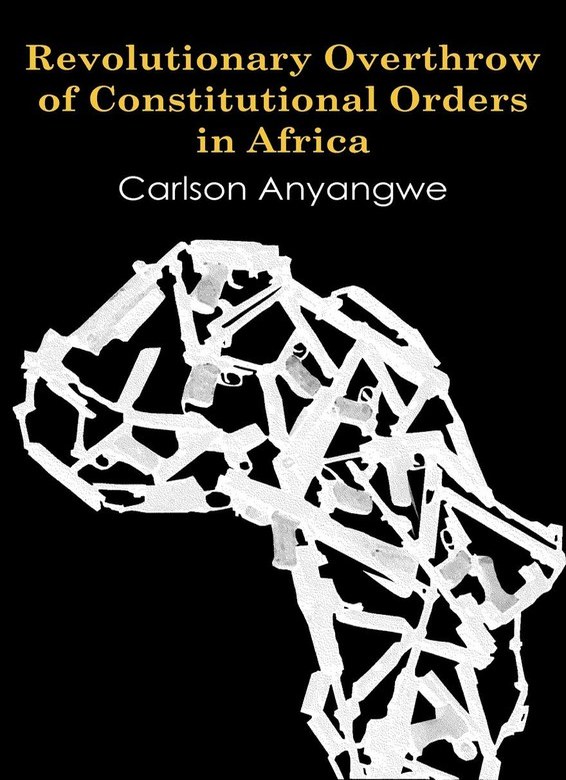written by Carlson Anyangwe
The subject of revolutionary overthrow of constitutional orders in Africa is at the intersection of three disciplines: jurisprudence and legal philosophy, constitutional law and power politics, and civil-military relations, that is, military security policy which is one aspect of national security policy. The subject is of interest in at least four ways. It problematizes the inescapable question of governance in the African continent. It challenges the democratization agenda in Africa – how does one democratize not only political governance but also the instruments of violence in the state? It also challenges African constitutional lawyers and policy makers to seek a constitutional model that addresses the enduring menace of the power of the gun in African affairs and the changing role of the military in African politics.
Finally, it underscores concerns about sovereignty and national security. This book contributes to a fuller understanding of the coup syndrome in African. To this end, it vigorously interrogates the place of coups in the governance of Africa, and explores the relevance of Kelsen’s theory of revolutionary legality in the context of coup d’états in Africa. It is a major contribution by a leading thinker in the field.
| ISBN | 9789956727780 |
| Pages | 206 |
| Dimensions | 216 x 140 mm |
| Published | 2012 |
| Publisher | Langaa RPCIG, Cameroon |
| Format | Paperback |





3 comments
“African governance by laws and constitutions, or by soldiers? The edgy terrain most countries negotiate between these polarities? Carlson Anyangwe’s panoramic study examines this continent-wide experience since 1950. He assesses arguments for and against coups, develops their typology and examines jurisprudence scholars, especially Hans Kelsen, for conceptual guidance and remedial possibilities. Urgent governance issues receive here the well written, systematic appraisal they merit but seldom attract.”
Milton Krieger, Emeritus Professor, Western Washington University, USA
“This solid and thoroughly researched book, provides the spur for a clutch of books on constitutional disruptions, with a distinctly African focus, filling a void that has lasted since the 1960s.This landmark text is a MUST READ for those who want to understand the historical trajectory of the aberrant and abhorrent rise of “politicians in uniform” on the African political scene.”
Professor Tatah Mentan, St. John’s University, Minnesota, USA
“This book closely examines the role of the military and coups in the field of governance in Africa, and questions the existing legal theory of the coups’ revolutionary legality. Anyangwe challenges Africa’s constitutional lawyers and policy makers to seek a constitutional model that addresses the enduring menace of the power of the gun in African affairs and the changing role of the military in African politics. I also highly appreciate his effort of providing the reader with a short historical review of military coup experiences in various African states.”
Piet Konings, Senior Researcher, African Studies Centre, Leiden, the Netherlands